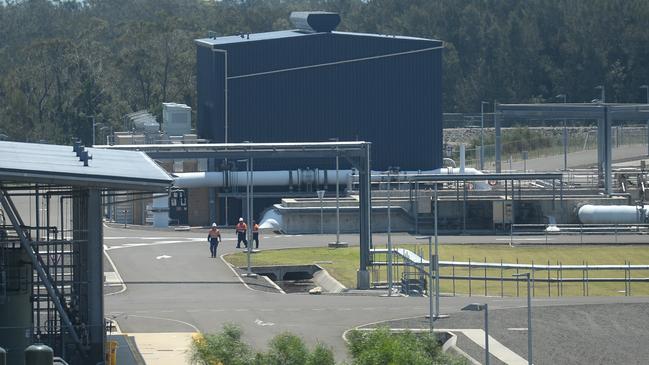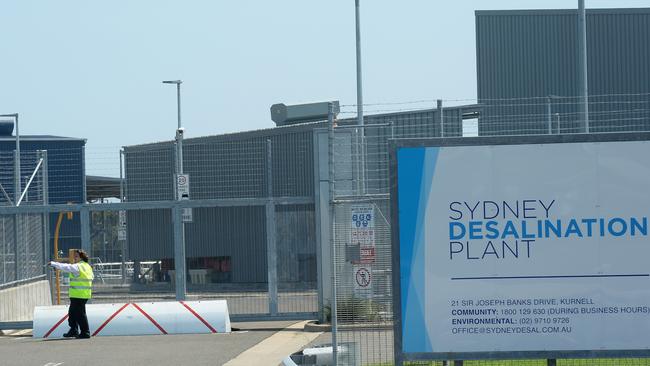Desalination plant switched on Sunday with water bills set to rise by up to $35
Sydney’s desalination plant will be switched on today, with household water bills set to rise by up to $35.
NSW
Don't miss out on the headlines from NSW. Followed categories will be added to My News.
SYDNEY’S controversial desalination plant will be switched on today, with city household water bills set to rise by up to $35.
With dam levels falling to 60 per cent yesterday, the state government announced the $2.3 billion Kurnell plant would start operating, unless there is an unexpected downpour.
The desalinator will supply up to 15 per cent of city’s water, but it will take between three to four months before drinking water enters the Sydney Water network and eight months before it is “fully operational”.
NSW Utilities Minister Don Harwin said the plant, which is cranked up when dam levels fall below 60 per cent, was an “insurance policy” to slow down “the depletion levels in our dams”.
“There’s no reason to be alarmed about Sydney’s water because, in fact, we’ve still got two years’ worth of water supply in our dams,” he said.

“This will be the first time that it’s turned on since its testing phase when it was first built.”
The annual increase to water bills will be between $25 and $35, depending on usage, and start from July. “We have the lowest water prices of any major city in Australia,” NSW Treasurer Dominic Perrottet said.
It was commissioned and built during the near-decade long “millennium drought”, to provide water security for Sydney. The drought ended in 2009 and the plant was opened in 2010. It was labelled a “white elephant” by critics.
The desalinator was operational for testing purposes until mid-2012. For the past three years, repairs have been carried out on the plant after it was severely damaged by a tornado.
When up and running, the plant must operate for a minimum of 14 months under the Metropolitan Water Plan.
Opposition water spokesman Chris Minns said the water bill increase comes “on top of higher electricity bills and tolls — people are going to feel it”.

“Since the Liberals privatised it back in 2012 every year NSW taxpayers pay $100 million just to keep it ready for use; but because it’s no longer in the state’s hands that money isn’t fed back into maintenance or lower bills but straight into the pockets of the plant’s overseas owners,” he said.
If dam levels fall to 50 per cent, water restrictions across Sydney are expected to be put in place.
Level one water restrictions include limits on sprinklers and the times of the day when garden hoses can be used and cars washed.
Mr Harwin yesterday said he wasn’t keen to bring in the restrictions earlier because of the impact on business and jobs.
NSW Utilities Minister Don Harwin said: “Under the Metropolitan Water Plan, when dam levels fall below 60 per cent, the Sydney Desalination Plant is switched on to boost supplies.”
Opened in 2010, the desal was built to provide water security for Sydney during dry spells and was in operation for a “testing phase” until mid-2012.
For the past three years, repairs have been carried out on the plant, once labelled a ‘white elephant’, after it was severely damaged by a tornado.
When up and running, the plant must operate for a minimum of 14 months.
Sydney Water managing director Kevin Young said everyone can play a part to reduce water use.
“A small saving by each individual can create a significant water saving if the majority of the 5 million Sydneysiders get involved,” Mr Young said.


